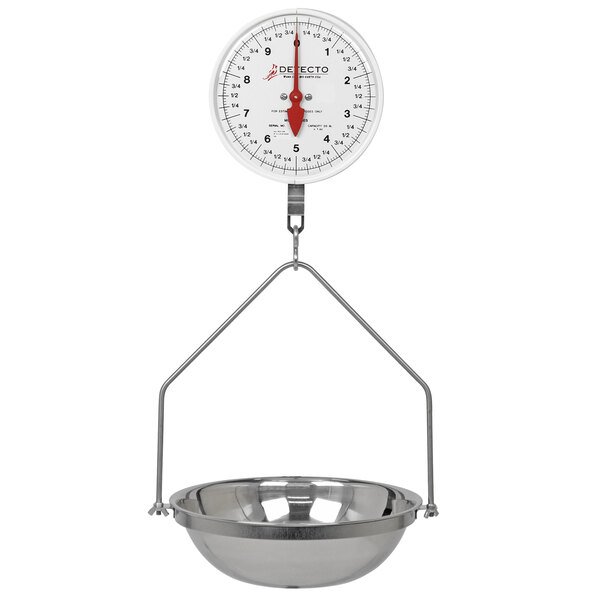One of my part-time jobs in high school was working for a huckster. My boss left Maurertown very early every Wednesday morning to travel to northern Virginia to sell fresh produce, eggs, and meat. He had a regular route and standing orders from customers that he filled faithfully each week before returning on Friday afternoons.
My part of this operation was to help plant, weed, spray, and harvest the acre-sized garden as well as to load the truck each Tuesday and unload it again on Fridays. Assorted additional duties of mowing, weedeating, trash burning, and others were also part of my job description under the “anything else” clause of my unwritten contract.
One of the tasks we usually performed on Tuesdays was bagging and weighing produce. This included green beans, tomatoes, squash, and other items we grew onsite as well as apples, peaches, and produce he bought from others. We also cut and bagged chickens and sold them by weight.
Each time we used the hanging scale, we had to recalibrate it. Because these instruments are sensitive to weather, insects, and constant use, they need to be rechecked often to make sure they aren’t weighing too light or too heavy. A simple finger screw would quickly bring it back to zero so our work could proceed.
The Virginia Department of Agriculture and Consumer Services regularly checks commercial scales at processing and retail facilities to make sure consumers are not being cheated. In addition, gas pumps, LP meters and other measuring devices are periodically inspected. Even scales that weigh trailer trucks must be adjusted at times to make sure they are accurate.
Almost all measuring devices need to be frequently examined as routine use can cause them to become inaccurate. Failure to regularly readjust these items results in errors which compound until gross inaccuracies cause major problems.
The same is often true of our moral scales. Exposure to various entertainment, media, friends, and pop culture can easily knock our bearings off. Actions or attitudes that we consider innocent may actually be sinful in God’s sight, but the opinions of others can easily convince us otherwise. Failure to attend to these incremental departures from truth and holiness results in increasing error. Left unaddressed, our moral judgment can become so damaged that we begin to call good evil and evil good.
Our own self-image can also become maladjusted as we either get puffed up with pride or depressed with self-hatred. The compliments and insults of others can easily push our scales in one direction or the other and if not realigned, major problems can ensue. Family members, employers, coworkers, and even well-meaning counselors can so twist our minds that we fail to make sound decisions and good judgments.
Thankfully, we have a tool for recalibration. God’s Word provides His perspective on human behavior and self-worth. Because we can easily be knocked off kilter, it is vitally important that we readjust our thinking and our conduct to align with His standards often.
Daily prayer and Bible reading help to recalibrate our opinions and our conduct according to God’s unchanging criteria. Ideally, we would read it in the morning before the onslaught begins to recognize errors when they arise and then again at bedtime to dial us back to where we need to be.
Standard weights and measures are stored in vaults to prevent incremental creep and to periodically adjust the adjusters. Spiritually, God’s perfect standards are preserved for us in His Holy Word that we can access whenever we choose. We can and must use it to evaluate the changing values around us to stay accurate, true, and focused.
Because we can be bumped into error so easily, we need God’s standards to recalibrate our hearts and minds. If you haven’t picked up your Bible in a while, there’s no better time than the present.
Blessings, George
